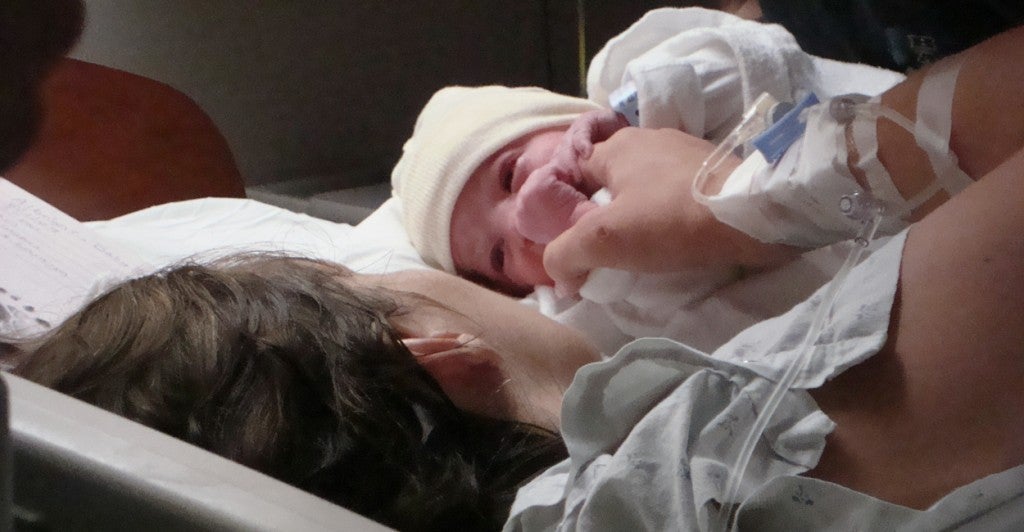In the latest challenge to Texas’ so-called “pro-life law of the century” (passed as H.B. 2), last week a three-judge panel of the 5th U.S. Circuit Court of Appeals heard the case Whole Woman’s Health v. Lakey.
Abortion providers, including Whole Woman’s Health Clinic in McAllen, Texas, sued the state to keep key provisions of H.B. 2 from being enforced. The law passed the Texas House by a bipartisan majority of 96-49 and was signed into law on July 18, 2013.
“States are free to regulate the practice of medicine for the safety of patients,” states Allan Parker, an attorney and pro-family legal advocate present in the courtroom during the hour-long hearing. As president of The Justice Foundation, Parker and his legal team filed a brief in support of the state.
“Texas now has a pro-life legislature,” he continues. “Surely the will of the people in this area should be the law. Most people want to protect human life and protect women.”
The passage of H.B. 2 in Texas is regarded as a landmark event in the pro-life movement, spurring other states to enact similar common-sense protections for women and pre-born babies.
The Justice Foundation’s legal brief documents testimonies of 3,279 post-abortive women and the negative effects of abortion on their lives.
“We represent women who have suffered injury after having an abortion,” Parker says. “Years later, many still deal with psychological injuries and emotional scars: suicidal thoughts, depression, anxiety, and nightmares.”
The 5th U.S. Circuit Court of Appeals heard a challenge to H.B. 2 (Photo: Goetz/CC BY-NC-ND 2.0)
Medical research studies on health risks faced by post-abortive women have multiplied in recent years. “Texans, and in fact all Americans, need to be involved in protecting women’s health and protecting the lives of children,” stresses Parker.
Oral arguments in this court case centered on whether two major provisions of H.B. 2 were constitutional: requiring abortion centers to have the same safety standards as ambulatory surgical centers, and mandating that doctors performing abortions have admitting privileges in a local hospital.
The New York Times reports that the three-judge panel “also criticized a lower court for voiding the entire surgery-center law, rather than specifying which parts were justified and which were not.”
Parker notes that the line of questioning on physician admitting privileges seemed to reveal the judges’ support of this requirement.
“Directing these doctors to have hospital admitting privileges does not bother true medical professionals at all,” Parker says. “That’s just part of good medical practice.”
Jonathan Mitchell, solicitor general of Texas who argued on the state’s behalf, faced more difficult questions around raising abortion centers’ health and safety standards up to ASC requirements.
“There is some cost involved to widen hallways and increase sanitary conditions in a clinic,” Parker acknowledges. “At least one of the judges was not convinced on the need for this type of requirement.”
H.B. 2 mandates abortion centers improve health and safety standards (Photo: E. Gatti/CC BY 2.0)
After interviewing more than 3,000 post-abortive women for The Justice Foundation’s court brief, Parker challenges this reluctance.
In a botched abortion, a woman ends up needing to quickly go to an emergency room—which is why these abortion centers need doorways and hallways large enough for a gurney. The woman also needs continuity of care once in the hospital, rather than an abortionist who is nowhere to be found.
In line with many court observers, Parker believes the three-judge panel will uphold H.B. 2.
“The judges want to support the will of the people through their elected legislature if they can,” says Parker. “The state presented a lot of compelling evidence that would allow the judges to do that.”
This court case is the latest episode in a nearly two-year struggle, as Texas legislators have prioritized saving defenseless pre-born lives. A decision from the Fifth Circuit Court of Appeals is expected within a matter of months.
